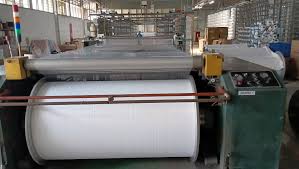
Allegations of import quota mafia practices have resurfaced in the textile sector. The surge in yarn and fabric imports is blamed as the primary trigger for the collapse of the domestic textile industry. The Indonesian Filament Fiber and Yarn Producers Association (APSyFI) has blamed import quota mafia practices for the closure of dozens of factories and the mass layoffs of hundreds of thousands of workers.
APSyFI Secretary General Farhan Aqil Sauqi stated that the alleged import mafia stemmed from the sharp increase in yarn and fabric imports. As a result, around 60 companies producing similar goods were forced to close and lay off workers. In response, the Ministry of Industry emphasized its readiness to take firm action if any textile import quota mafia practices are proven. Minister of Industry Agus even requested concrete evidence so that this case can be immediately followed up.
APSyFI welcomes the government's stance, considering that the recovery of the national textile industry ecosystem depends heavily on regulatory enforcement. Aqil emphasized that maintaining the availability of raw materials is indeed the government's responsibility, but this must be in line with the obligation to maintain the sustainability of the entire industrial chain. If imports replace domestic production, the government will be deemed to have failed to maintain a supply chain ecosystem that is closely integrated with the petrochemical sector.
In the past eight years, the Indonesian textile industry has experienced a downturn. Data from the Indonesian Textile Association (APsyFI) indicates that approximately 250,000 workers will lose their jobs due to the closure of 60 factories between 2023 and 2024. Meanwhile, the National Trade Union Confederation (KSPN) recorded an additional 400,000 workers, mostly in the textile and footwear sectors, being forced to lay off until August 2025.
Data from the Central Statistics Agency (BPS) shows a significant increase in imports. In 2016, yarn imports were only 230,000 tons and fabric 724,000 tons, while in 2024, these figures jumped to 462,000 tons and 939,000 tons, respectively. As a result, the textile and textile products (TPT) sector's contribution to national GDP continued to decline, from 1.16 percent in 2016 to just 0.99 percent in 2024. The TPT trade balance also declined from US$3.6 billion in 2016 to US$2.4 billion in 2024. Since 2017, the TPT trade volume has experienced a deficit of 57,000 tons.
Although Statistics Indonesia (BPS) recorded annual growth of the TPT industry at 4.35 percent in the second quarter of 2025, the Indonesian Textile Association (APsyFI) believes this data does not account for illegal imports or stalled investment. Aqil emphasized that the main issue now is not simply growth figures, but rather solutions to the ongoing wave of layoffs and factory closures.
On the other hand, the Ministry of Industry emphasized that various protection instruments have been implemented, such as Anti-Dumping Import Duty (BMAD) on Polyester Staple Fiber (PSF) valid until 2027, BMAD on Spin-Drawn Yarn (SDY) valid until 2025, and Safeguard Import Duty (BMTP) on yarn and fabric valid until 2026 and 2027. According to the Ministry of Industry, this protection provides double benefits for upstream industries, but is not accompanied by technological modernization or new investment.
The Ministry of Industry stated that all import policies and industrial protection are implemented based on the principle of fairness between upstream, intermediate, and downstream industries. Export-oriented downstream industries are still given the opportunity to compete in the global market, while the domestic market is directed towards import substitution in accordance with national industrial capabilities.
Amidst these competing interests, the shadow of the import quota mafia remains a spectre, undermining the competitiveness of the national textile industry. Without decisive action, this sector, once the backbone of the Indonesian economy, is feared to decline further.
